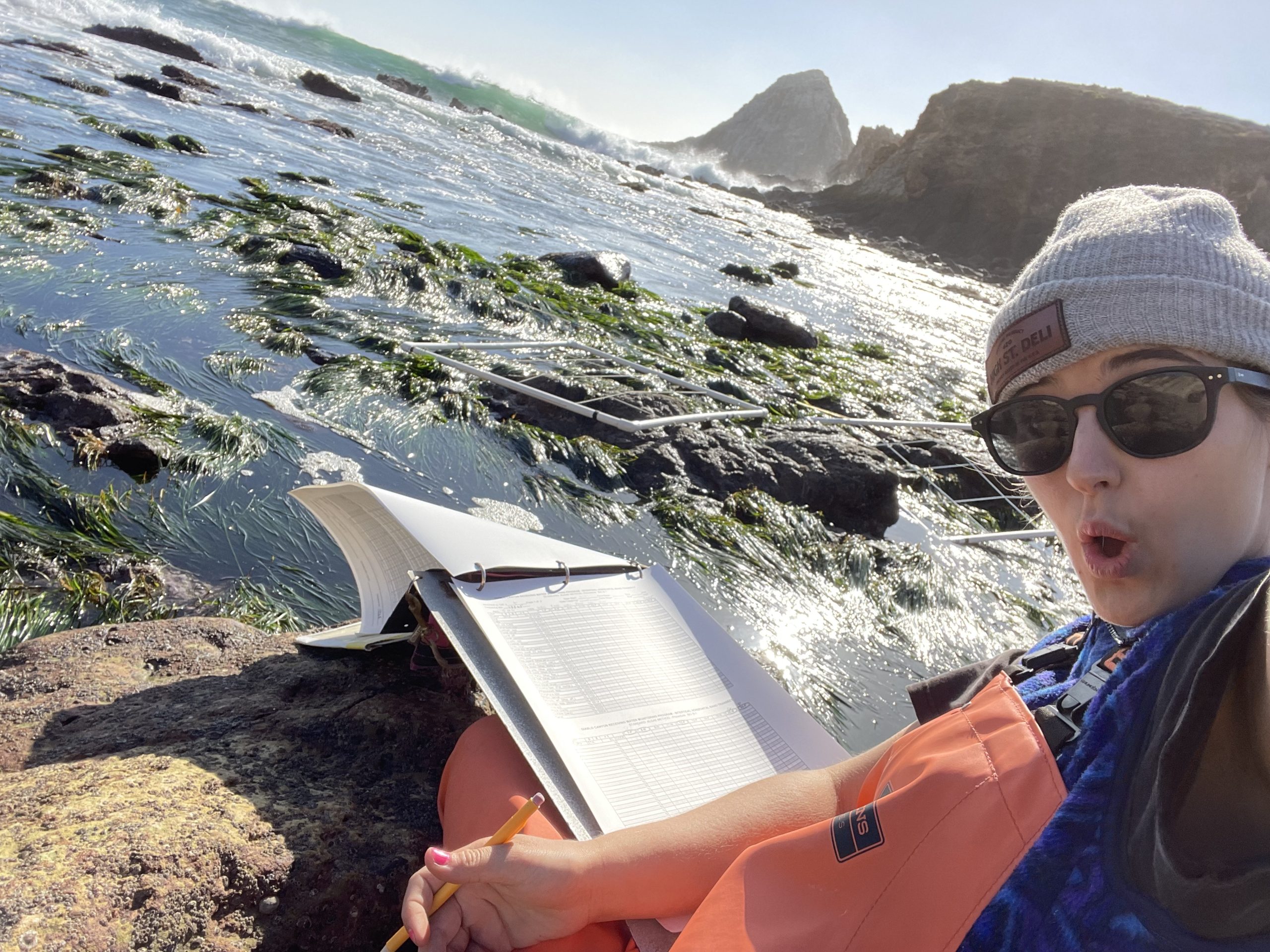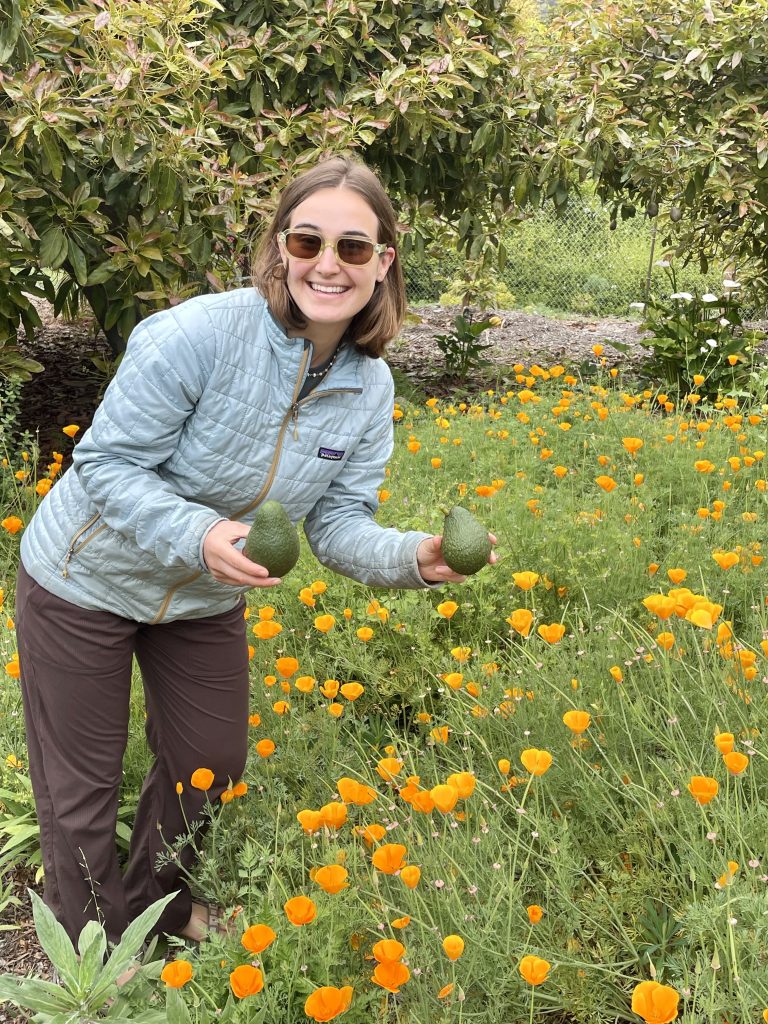The Nuances of Environmentalism from Marine Scientist Francesca Nash

Get up and out of your bunk at 4 am. Make coffee and a bagel… it’s burnt. Equip your waders, boots, headlamp, backpack, and lots of surveying equipment. Wade in the river and hike the woods for 12 hours, being cautious not to run into the man who lives in the shack made of bones. Count fish. Report fish. No breaks. Back in your bunk by 8 pm. Repeat six days a week, seven weeks straight.
This is the life of marine researcher and environmentalist Francesca Nash during the summers in Washington state, in the remote Northern Cascades. Originally from Carpinteria, Nash grew up exploring the coast of California. It wasn’t optimal surfing or gorgeous views that brought Nash to the ocean daily. It was something more macabre.
“I’d find dead animals washing up. I found deep sea fish, slugs, and things I couldn’t describe, all showing up in different seasons.” Adding to Nash’s interest, the 2015 oil spill and ecological consequences fascinated her high school self. “How are we abusing the environment, and what can we do about that?”

Nash attended Cal Poly San Luis Obispo, studying Marine Sciences, and this June completed a Master’s in Marine and Environmental Affairs at the University of Washington, now working in the fishery and habitat restoration industry for an environmental consultancy in Washington.
Her clients include private energy companies, like those that run dams and power plants, as well as government agencies like NOAA, EPA, Tribal Nations, and nonprofits. “Our goal is to create a healthy ecosystem by calculating environmental impacts and creating more ideal habitat conditions for different species.”
When asked what people may not suspect about the fishery business, Nash stated, “It’s a contentious industry. It’s not just about fish, it’s political: it’s people’s resources, livelihoods, and income. There are a lot of negotiations between different stakeholders like the state government, federal government, landowners, tribes – even other countries. There are a lot of big feelings about it.”
Nash prefers smaller, local efforts versus massive corporate fishing endeavors. “Now you can take a giant vessel out and scoop up as many fish as you want. Our modern-day equipment is too efficient and is disruptive to the environment. What if you fished, but used more traditional gear? Rotated harvesting sites? Paid attention to seasonality?”
Aside from her fascination with marine species and habitat protection, she is invested in keeping outdoors spaces accessible to the public. “I’m proud to be from California where regardless of what house you live in, you are able to enjoy the same beaches that beach-front properties enjoy.”
Nash is also an advocate for everyone in local communities to have more agency and access to environmental resources like fishing and hunting.
“Although they come from a place of respect for the environment, some environmentally-conscious citizens who advocate privatizing resources and land fail to recognize their privilege. They are typically removed from the extraction and production of their food; while they’re happy to eat a fish in a restaurant, they’ll bar those who would prefer to harvest their own food, which is more environmentally sound.”

While we typically expect environmentalists to hold firm beliefs against hunting, Nash appreciates the more nuanced perspectives of resource extraction and sustainability. “Initially, I had more stringent beliefs about what real environmentalism looked like, but that has changed to honor and respect lifestyles different from my own. For example, I don’t hunt, but I respect hunters – not trophy hunters – but those who connect to their environment and harvest their own food.”
“I used to not eat red meat, but if it’s ethically sourced and offered to me, I think it is respectful to accept someone else’s resources. People forget that meat is a valuable resource that takes years to develop.”
Nash also praised the communal act of trading resources for other resources; she squealed in delight when I told her I trade design services for instrument lessons, relaying that her parents send her boxes of avocados from Carpinteria to trade with folks in Washington.
Nash hopes to infuse her community-centric philosophy and practices into the industry of fishing. Nash is particularly excited about NOAA’s plans to designate the coast from San Luis Obispo to Santa Barbara as a marine sanctuary to the Chumash tribe, which has been in talks since 2015.
As the NOAA Chumash Heritage website states: “Marine Sanctuaries consider the interconnections amongst all the physical and biological features of the marine environment, as well as human interactions at each individual sanctuary site.”
Nash looks forward to contributing to inclusivity in an industry that, as of now, is predominantly male and white dominated. She and her partner of seven years David, her biggest supporter outside of her dogs Juno and Champion, plan on returning to California where they met in undergrad at Cal Poly.
Until then, Nash continues her exploration of Washington’s endless natural beauty. She misses Santa Barbara’s wonderful natural surroundings, and hopes people enjoy the abundance of resources available to them.







You must be logged in to post a comment.